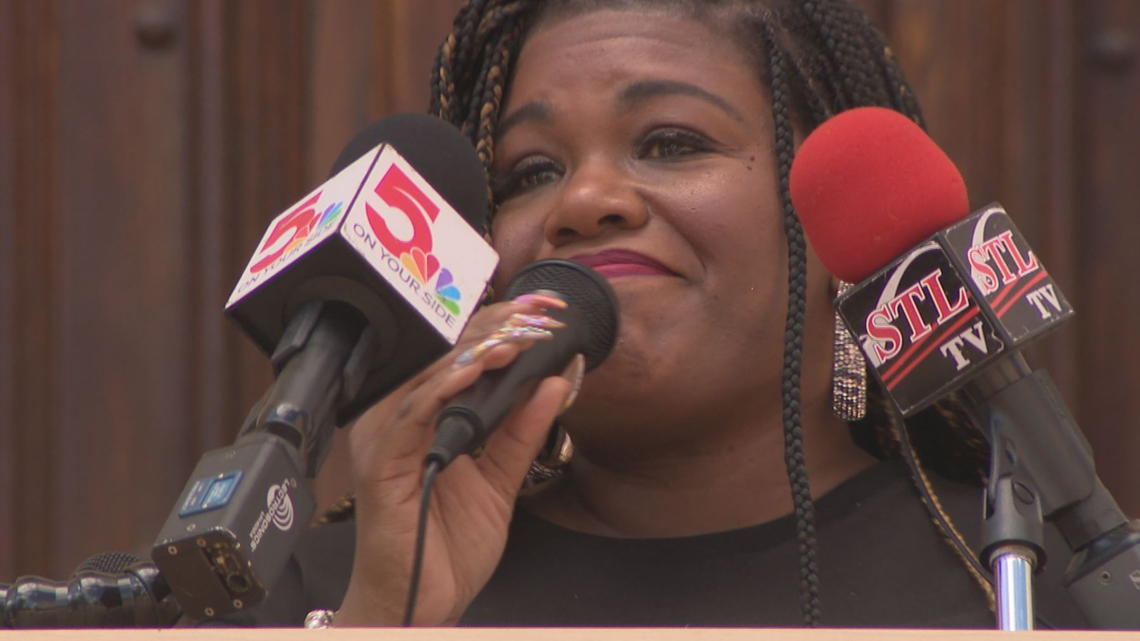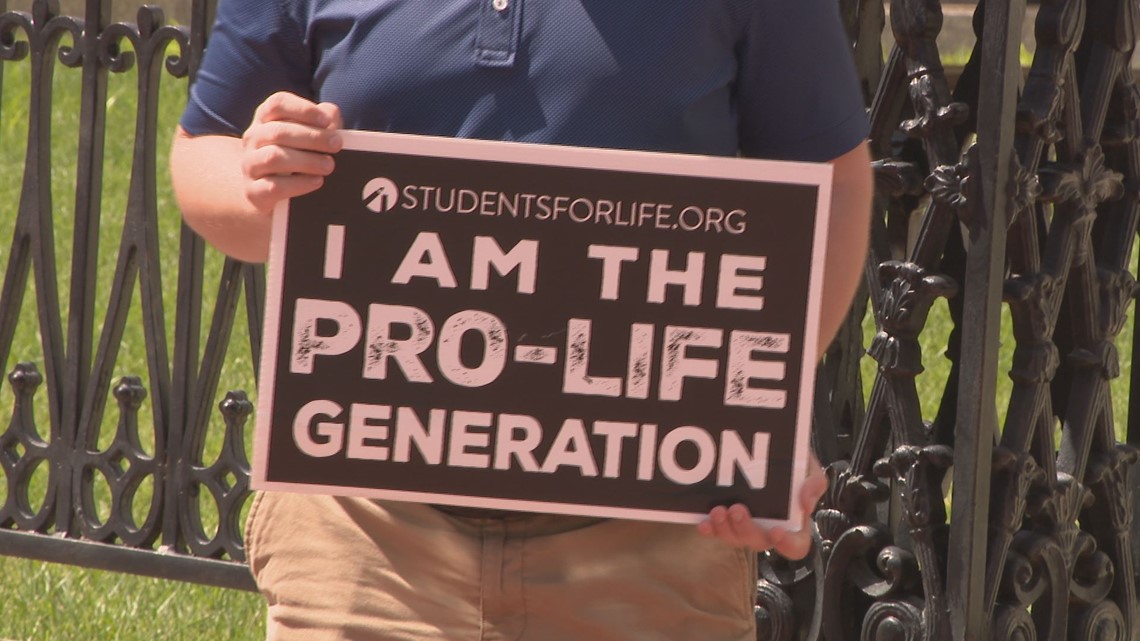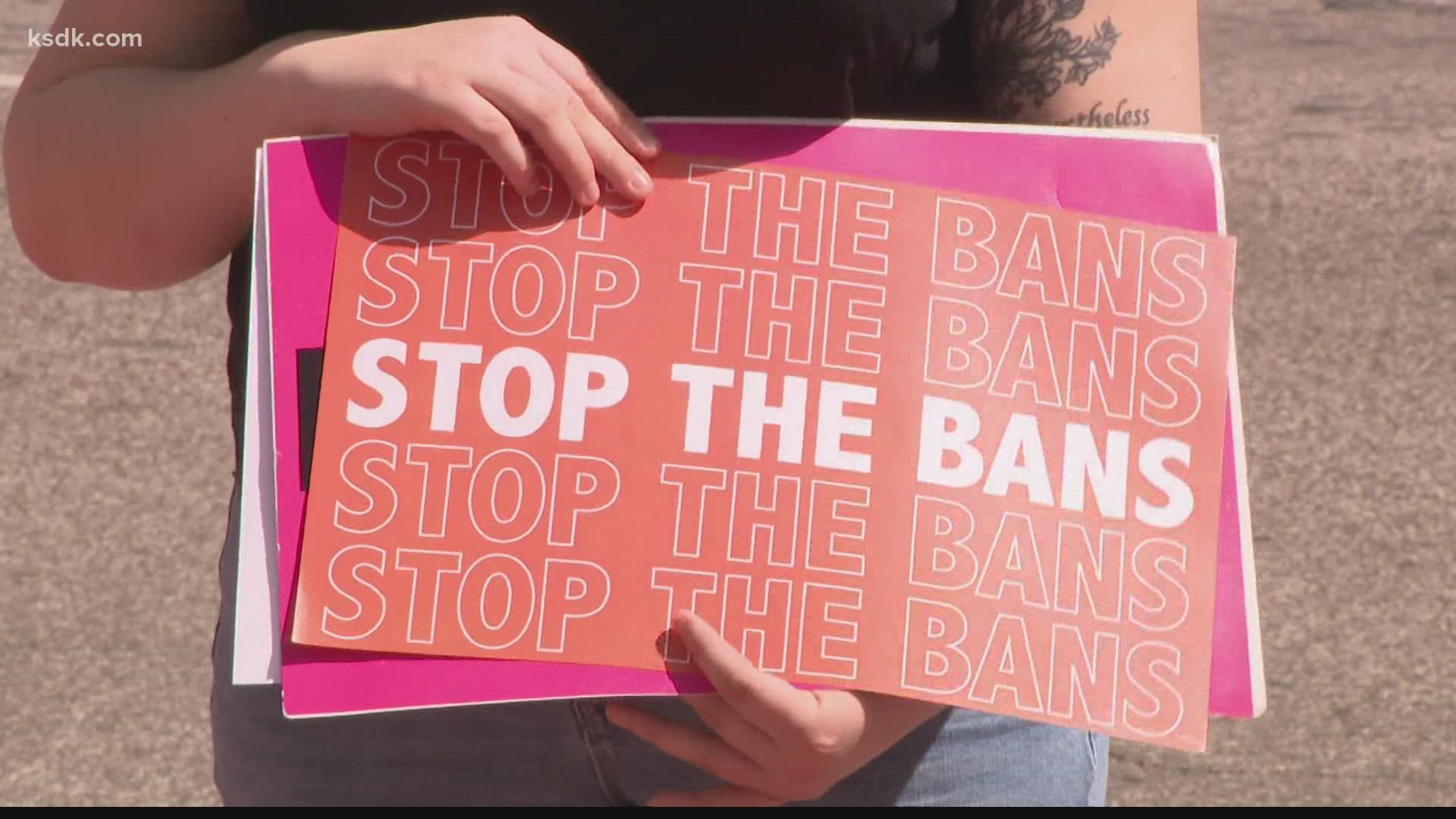ST. LOUIS — Texas' six-week abortion ban is causing ripple effects in the St. Louis area.
On Thursday, advocates for abortion services stood on the steps of the Old Courthouse hoping their voices will prevent similar bans from being planted in Missouri.
And the Metro East clinics are feeling the impact.
"Texas patients are now traveling hundreds of miles out of state to receive reproductive health services," St. Louis Mayor Tishaura Jones said.
We're told the Fairview Heights and Granite City locations are seeing patients from Texas and getting calls for help.
That's because Missouri has a law that advocates say causes some barriers for patients.
Missouri law requires a mandatory 72-hour waiting period between the time you sign your consent and your procedure. One clinic in Missouri provides abortions; it's located in the Central West End neighborhood in St. Louis.
Still, Jones worries that Missouri could end up like Texas.
House Bill 126 "Missouri Stands for the Unborn Act" puts a ban on abortions at the eighth week of pregnancy and later.
In May 2019, Governor Mike Parson signed HB 126 into law.
It was set to go into effect in August 2019, until a federal judge placed an injunction on part of the bill the day before it was enforced.
This means abortions are still available and legal in Missouri.
HB 126 is still tied up in the court system, but it will be heard in the Eighth Circuit Court of Appeals on Sept. 21. This is one step away from the Supreme Court.
If this would go into effect, it would criminalize doctors who provide abortions and ban abortions after eight weeks.
"Legislators all the way in Jefferson City keep telling people here in St. Louis what we can and can't do with our bodies, and I say enough is enough," Jones said.
Congresswoman Cori Bush echoed the same fear. She said she personally understands the impact bans can have.
For the first time, she shared her own abortion story publicly.


"Services were available, services helped her, service treated her in many ways and now that woman stands before you as your U.S. congresswoman," she said proudly.
Not everyone in the crowd, though, was in favor of abortion services.


Lucy Gonzalez is with Students for Life of America.
It's a nonprofit anti-abortion organization that has formed groups of high school and college students across the country.
"Students for Life of America is very happy to support that Texas ban that went into effect," Gonzalez said. "I am just so passionate to help women. A lot of the time pro-lifers are seen as people who hate women, or who don't want to help women, but we are here to help you."
State Representative Mary Elizabeth Coleman also released a statement commending the Supreme Court's decision allowing the Texas Heartbeat Act to go into effect.
“While legal challenges continue, I applaud the life-affirming decision of the Supreme Court to allow the Texas Heartbeat Act to move forward, but the fight for life continues. As an architect of Missouri’s HB 126, I am confident that the 8th Circuit en banc review will uphold the Missouri Stands For the Unborn Act. Furthermore, I commit that the first bill I will file in the upcoming session will ensure Missouri's unborn receive the same protection as the unborn in Texas.”
Coleman looks forward to working with State Representative Nick Schroer, State Representative Adam Schnelting, and State Senator Andrew Koenig, fellow architects of the 2019 “Missouri Stands for the Unborn Act. "We will continue the fight for the unborn in Missouri and we will use every available procedural and legal tool to protect women and children from abortion.”
It's clear, no matter what they're rallying for, each side wants their message heard.
"We want to be a voice for the voiceless and we want people to know that we here to fight for that life," Gonzalez said.
Advocates for abortion services said these bans are racist, ablest and sexist since it burdens people of color and people with low incomes who already face racist and discriminatory policies in order to access basic health care.

